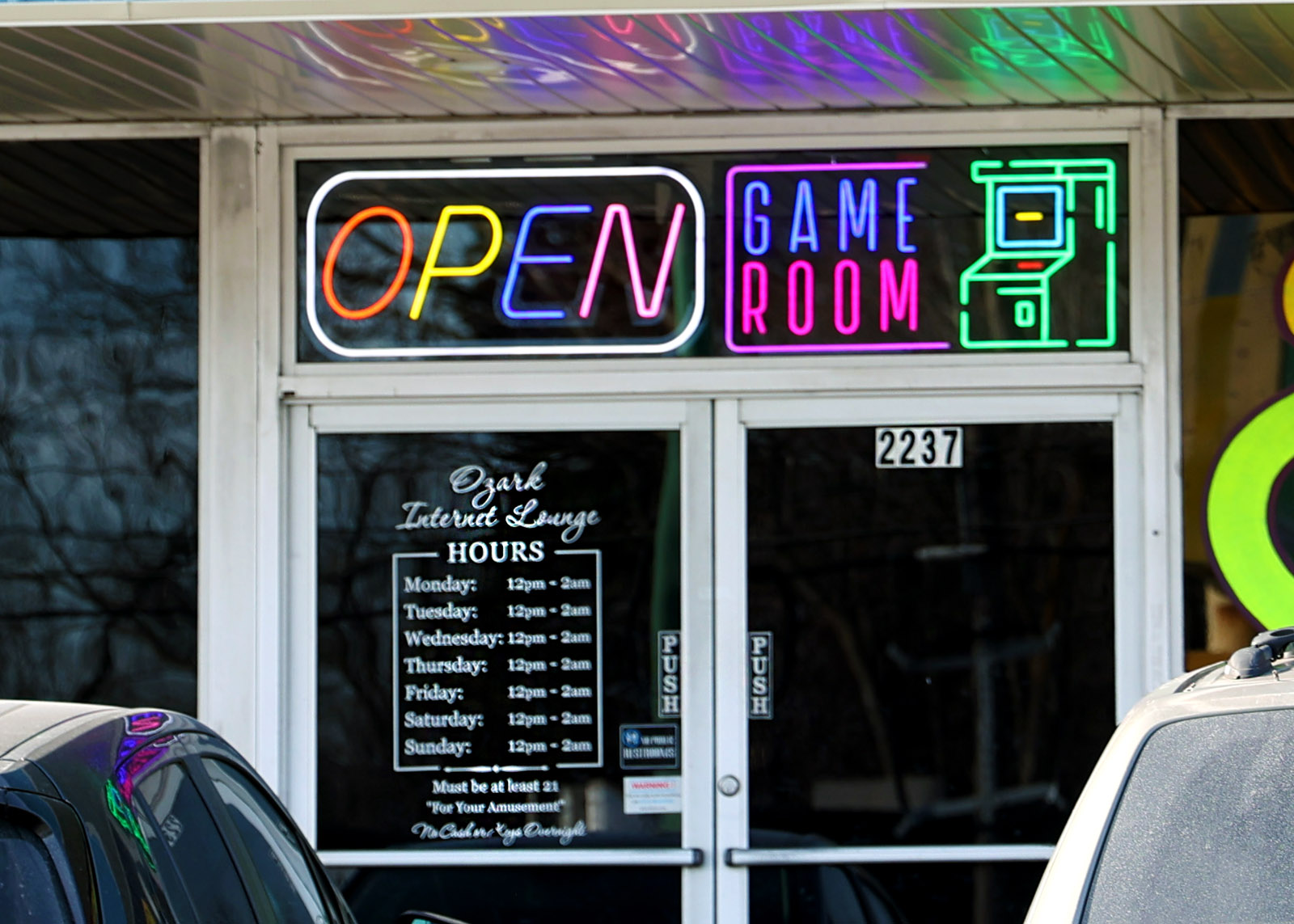“No-chance” gaming devices — commonly referred to as video lottery terminals or gray machines — may soon be booted from Springfield.
Council members are considering an ordinance that would prohibit the operation of entertainment devices that offer monetary prizes, a significant step and a unique approach in regulating the gambling-like devices that have proliferated around the state in recent years.
Over a dozen citizens provided about an hour of testimony on the proposed ordinance at the City Council’s Jan. 22 meeting, with many urging the passage of the bill and a few requesting a more tailored approach.
Sponsored by council members Monica Horton and Matthew Simpson, the council bill was prompted by mounting concerns over the reputed harmful effects the devices pose to individuals, neighborhoods and businesses.
“Entertainment devices offering monetary prizes can result in detrimental impacts to the players of such devices, including financial hardships and increased reliance on public assistance,” Mayor Ken McClure said in a news release. “Regulation is necessary for the protection of the public health, safety, and welfare of our community.”
The City Council is set to deliberate and vote on the proposed ordinance at its Feb. 12 meeting.
How will the ban work?
The proposed ordinance would prohibit the operation of any entertainment device which offers any monetary prize, no matter the rules of play. Monetary prizes can come in the form of a cash, check, bank transfer, negotiable instrument, store credit, gift card or any ticket or other item redeemable for such prizes.
Christopher Hoeman, the chief litigator with the City Attorney’s office, told the Hauxeda that the broader verbiage of “entertainment device” over “video lottery terminals” was drafted in order to address the core of council members’ concerns and impede other means that pose the same issues.
The focus, Hoeman said, is on the prize format, rather than the devices themselves. If passed, the ordinance would theoretically allow the same entertainment devices to be operated as long as it doesn’t disburse the defined monetary prizes.
“The goal wasn't to be coded or anything like that, it was to try and look at the big picture and say, ‘If one type of machine stops operating, would that solve that problem or would they be replaced by something else?’” Hoeman said.
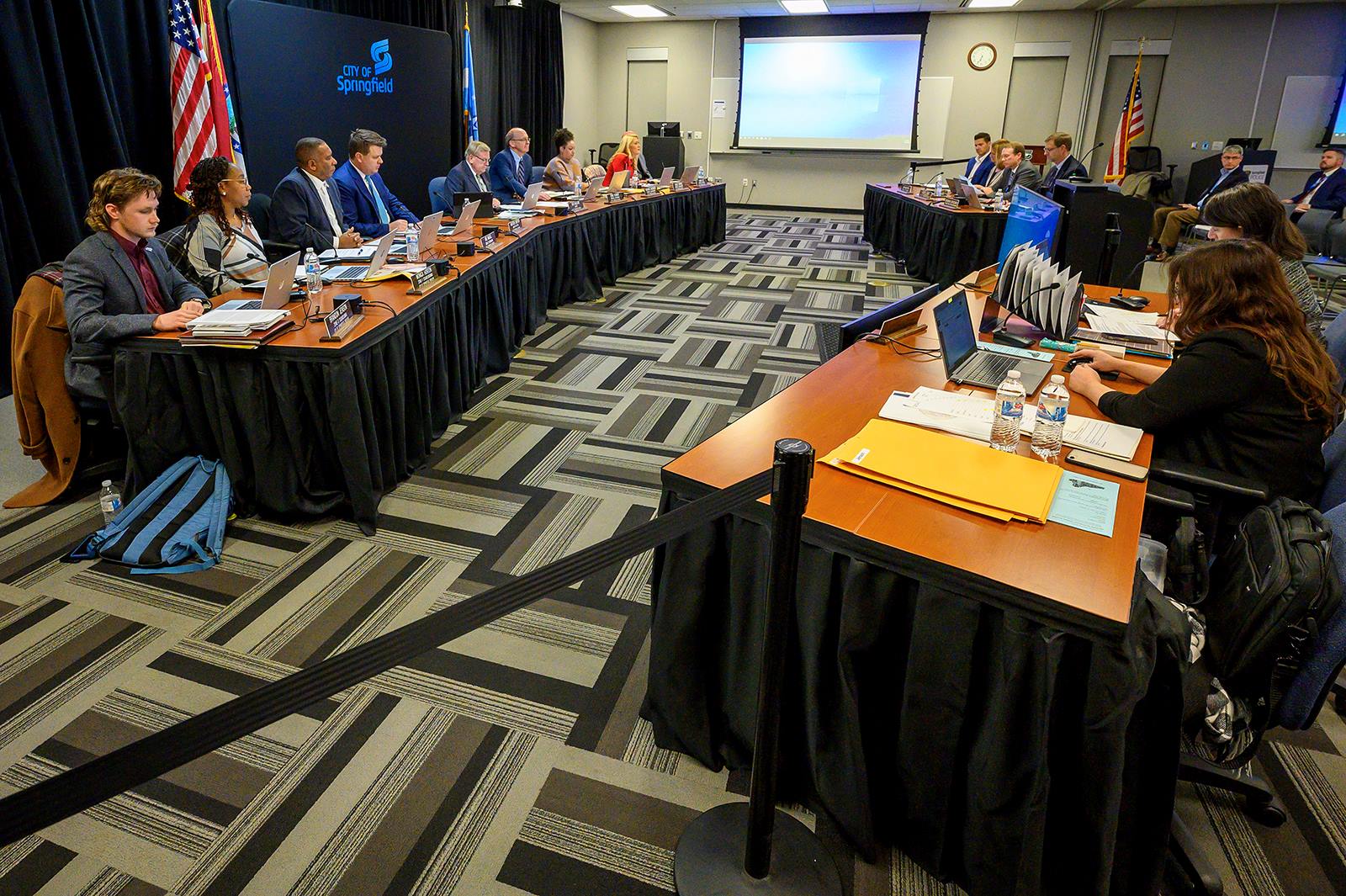
Each device offering such prizes would amount to an individual offense, with the first offense subjecting a violator to a minimum fine of $500, a second offense raising the fine to $1,000 and a third offense resulting in a $1,000 fine and a minimum of 30 days in jail. Violators would not be eligible for their sentence to be suspended, and would only be considered for probation or parole until a minimum sentence has been served.
The Springfield Police Department would be responsible for enforcement of the ban.
The bill being considered isn’t modeled off of ordinances or laws passed elsewhere, but was designed to address the concerns of council members and the community.
“Cities around the state are kind of grappling with what to do,” Hoeman said. “If it passes, other cities, I'm sure, will be looking at it.”
Not legal, not illegal
While this approach to ban video lottery terminals (VLTs) is unique to Springfield, Springfield isn’t the only city playing host to them. The spread of gaming terminals throughout Missouri has sparked debate at the local and state levels over the opportunities and concerns the devices pose. While they can be found in gas stations, bars, veterans organizations and other businesses, gaming lounges and internet cafés have recently gained popularity.
While a source of revenue for businesses, video lottery terminals pay nothing to the city, neither in the form of taxes nor licensing.
Businesses that host these machines have been subject to raids, as litigation and legislation — including a push at the state level to legalize, regulate and tax them — have yet to decide the legality of VLTs. These efforts have repeatedly died in the state Senate, and with it, sports betting.
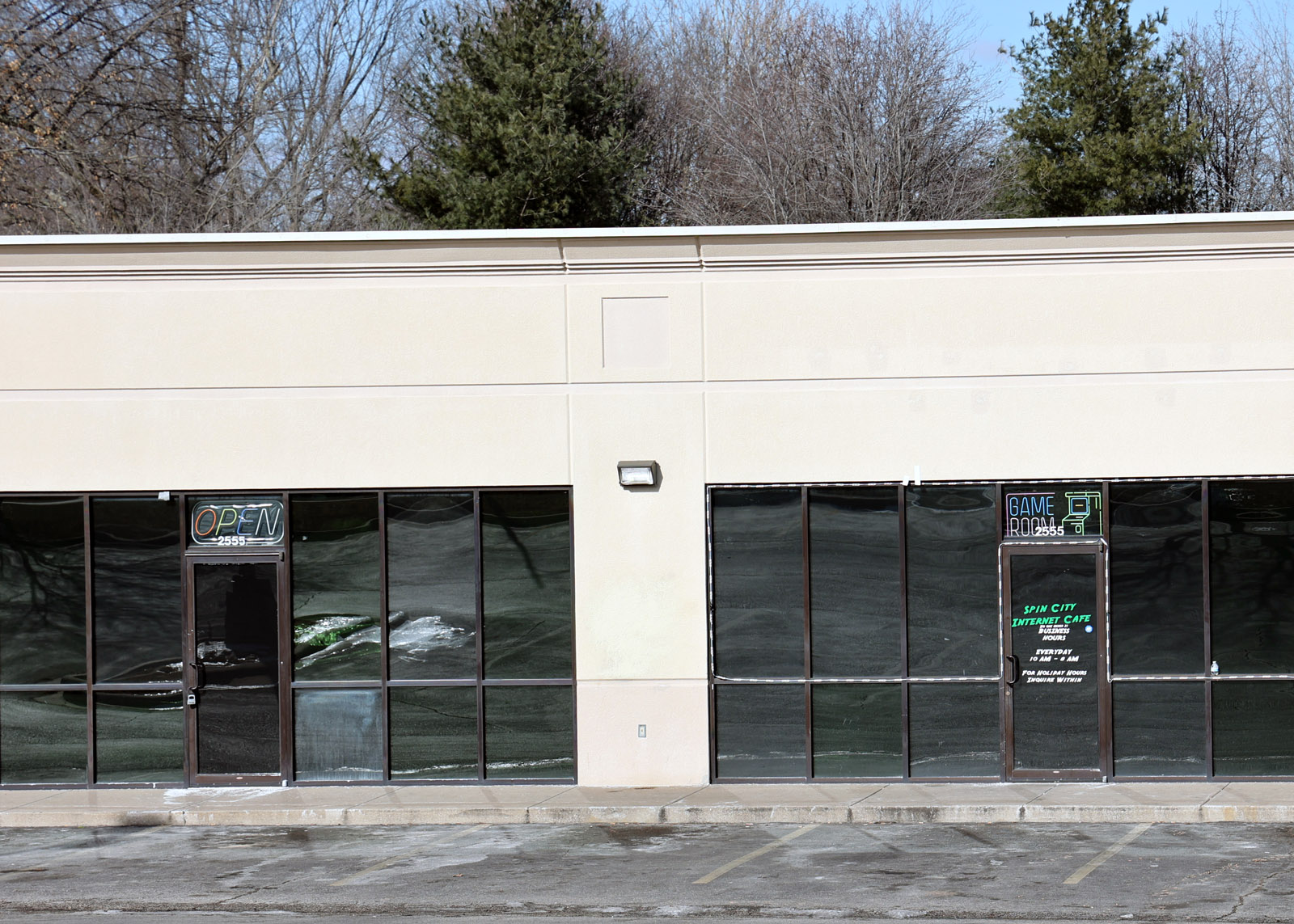
Among the city of Springfield’s 2024 legislative priorities is a request for the General Assembly to legally define VLTs as a form of gambling, which would effectively make them illegal. Gambling in Missouri is limited to the state’s 13 casinos and is regulated by the Missouri Gaming Commission.
Currently existing in a legal gray area, from which its nickname is derived, these entertainment devices vary from traditional slot machines in that participants can see the outcome of a wager before playing, with the chase being the outcome of the next play.
If passed, Springfield’s proposed ordinance may face legal challenges and could hinge on future legislation, according to Hoeman.
Public raises myriad of concerns, pushes for ban
The majority of testimony was strongly in favor of the proposed ordinance, with a wide array of concerns and first-hand experiences recounted to council members.
Joe Cooper owns and operates Cooper’s Clippers, a barber shop in the Plaza Shopping Center, which is also home to a gaming room.
“The Plaza, at one time, was the best shopping center in southwest Missouri,” Cooper said. “Today, it’s a ghetto.”
Cooper, and fellow business owners in and around the strip mall, say the increase in crime — including prostitution, drug use and trespassing — that has come with the gaming room has been harmful to business.
Susan Snook, the campus director of the Academy of Hair Design, which is also located in the Plaza Shopping Center, said that she has had to hire security to address safety concerns for her staff, students and patrons.
“We’re a business, and it’s hurting us tremendously,” Snook said.
The public is also concerned with the negative impact these gaming devices have on their people that play them. David Manning, who works in addiction and mental health services, has also seen the harm of addiction in his side job as a cab driver, for which he has driven people to gaming rooms late at night.
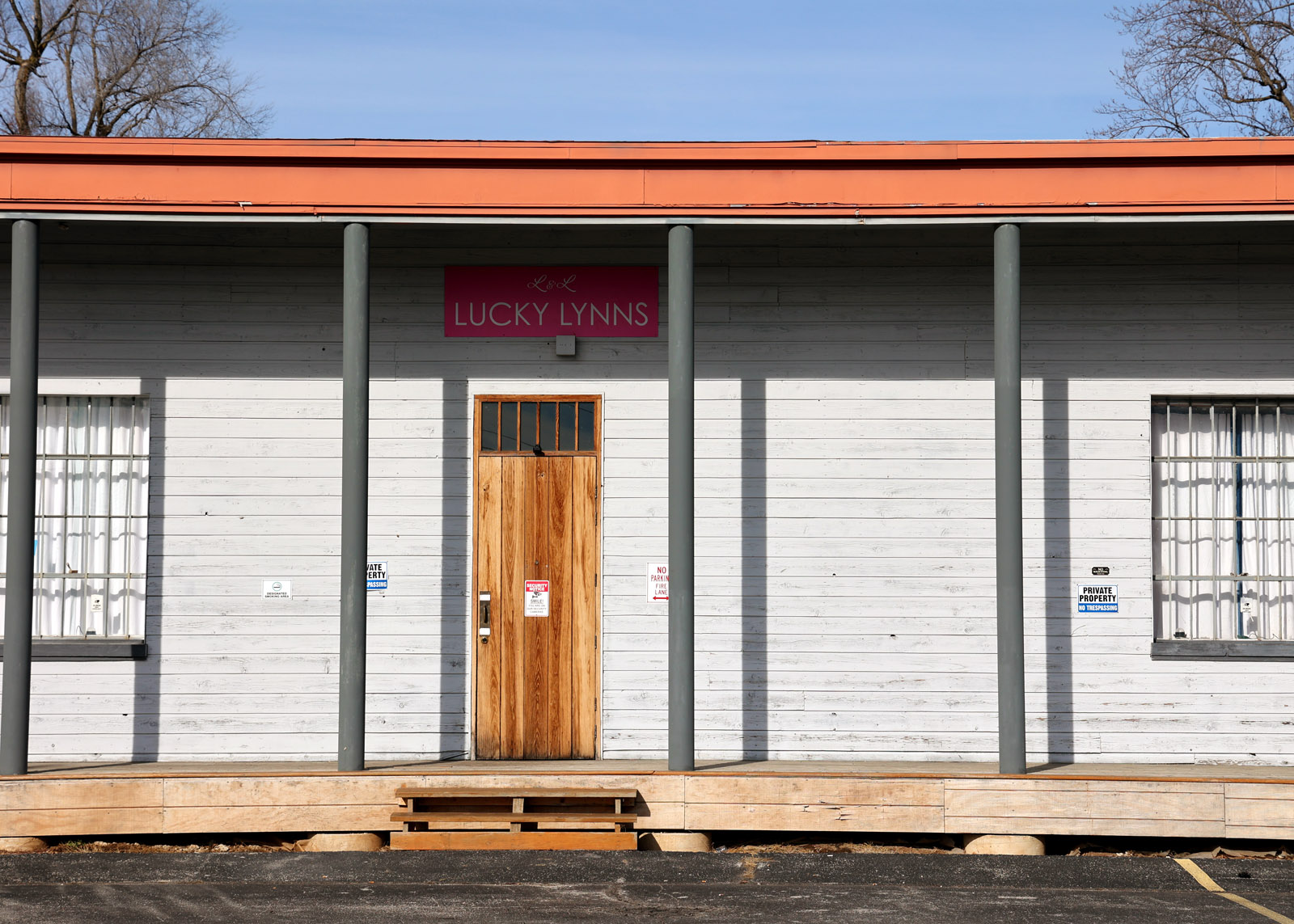
“These game rooms are definitely tearing away from the fabric of our community,” Manning said.
Zachary Rogers said the obsession consumes people who play these gaming devices, and can result in the neglect of children. He recounted an instance that illustrated when a girl was waiting in a gas station parking lot on North Glenstone Avenue while her mother was inside playing on a VLT.
“Much like addiction, much like cocaine, much like fentanyl, much like methamphetamine, the obsession that is tied to these gaming rooms and these gaming machines affects the children most of all,” Rogers said.
Mona Pieron, the vice president of the Woodland Heights Neighborhood Association and Becky Volz, the chair of the Neighborhood Advisory Council, vocalized concerns of neighborhoods.
Reading a letter drafted by her neighborhood association, Pieron said that video lottery terminals exploit loopholes to “take advantage of disadvantaged communities” and contribute to blight and crime.
Though gaming rooms are a prominent worry to citizens, the location of gaming devices in other businesses — including in neighborhoods — indicated concern was not limited to any one type of operation.
Several speakers discredited the fact that video lottery terminals weren’t considered a form of gambling under state law, and asserted that it was gambling. Aimee Jackson — who had personal experience using the gaming devices herself — made several accusations of gaming operations, including that actual gambling machines were being used in some places.
“Everybody thinks that somehow this is legal, but they just don’t understand that they are very severely getting ripped off,” Jackson said.
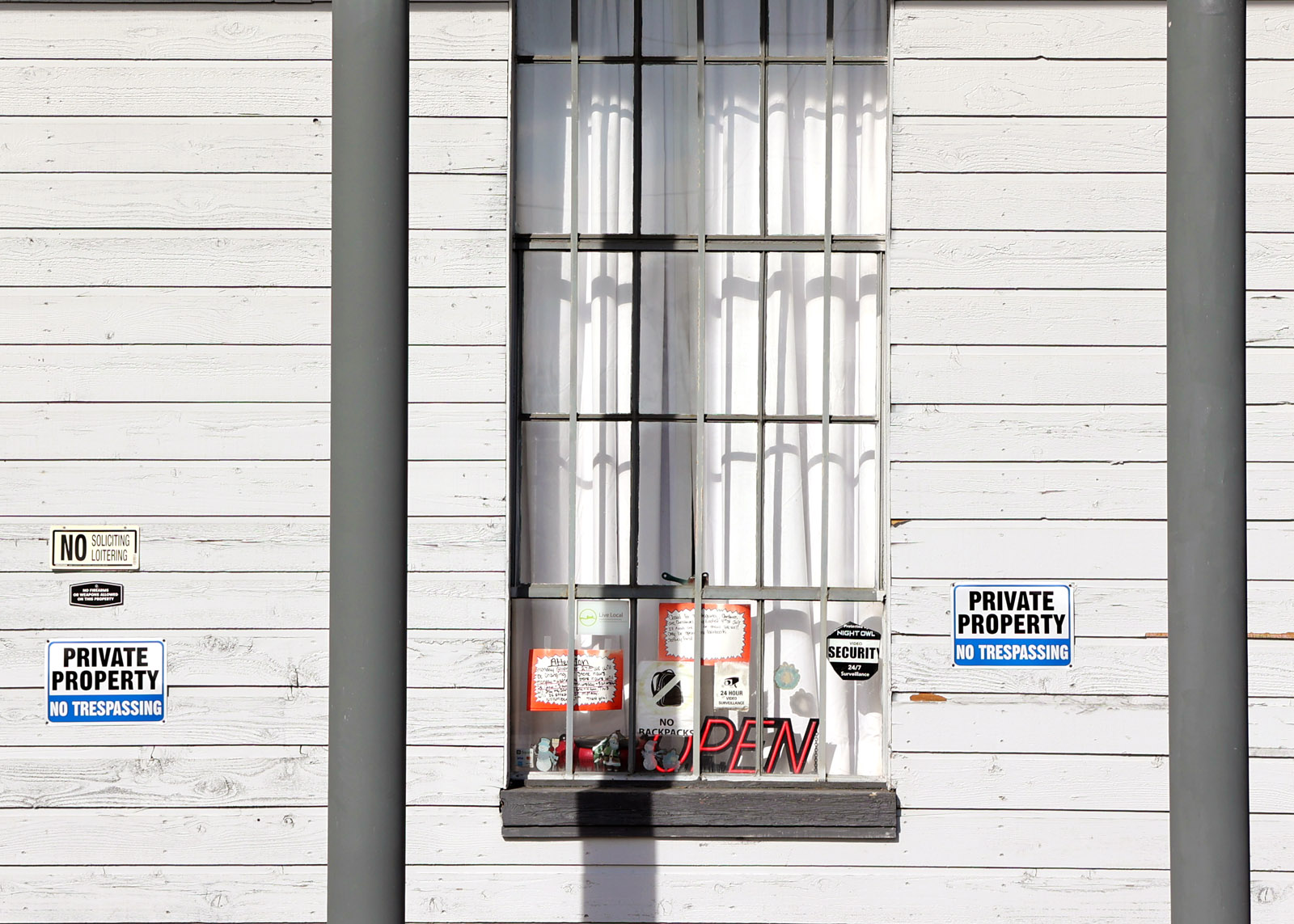
Council members encouraged to distinguish between gaming rooms, other businesses
The few who spoke in opposition to the proposed ordinance appeared to sympathize with problems posed by gaming lounges, but defended the operation of entertainment devices in their own businesses.
Dan Shaul, the executive state director of the Missouri Grocers Association, said that his organization wants to be a part of the solution, but warned council members of unintended consequences the ban might have.
“Why do we care about this issue?” Shaul said. “We want a level playing field. We want winners and losers to be chosen by the consumer, not by the government or just geography. This bill could affect people inside the city and outside the city.”
American Legion Post 639 has 11 entertainment machines, but doesn’t come with the same problems as gaming rooms, according to the post commander Mike Goforth. The terminals are only accessible to members and guests of members.
“Banning these games would entirely force us to make painful choices about the future of our post,” Goforth said.
Goforth expressed an openness to a revised approach to the ordinance, and suggested forming a task force to address the problems of gaming machines while limiting the impact a ban would have on some organizations.
Adam Naegler, the general manager of Fast n’ Friendly gas stations, similarly wants the focus of an ordinance to be on gaming rooms, and not other businesses that simply have gaming devices.
Naegler said that they haven’t seen an increase in crime since adding gaming devices, and they provided additional income for some stores that are “on the edge” of going out of business.
No one associated with a gaming room addressed the City Council.
